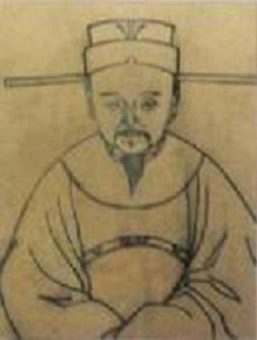Unit 6
Text
首(shǒu) 孝(xiào) 弟(tì),次(cì) 見(jiàn) 聞(wén),
知(zhī) 某(mǒu) 數(shù),識(shì) 某(mǒu) 文(wén)。
一(yī) 而(ér) 十(shí),十(shí) 而(ér) 百(bǎi),
百(bǎi) 而(ér) 千(qiān),千(qiān) 而(ér) 萬(wàn)。
Vocabulary
(1)首(shǒu):beginning, first
(2)孝弟(xiào tì):paying filial piety to parents and showing affection to siblings; 「弟」is the same as「悌」
(3)次(cì):second
(4)見聞(jiàn wén):what is seen and heard, referring to knowledge about life
(5)某(mǒu):someone or something unknown
(6)數(shù):a method to calculate in ancient times, one of the Six Arts
(7)識(shì):learn, realize, know
(8)文(wén):Chinese characters/words, articles, also a general term for knowledge
(9)一(yī):one, the first of all numbers
(10)而(ér):a function word to indicate action or movement from one point to the another, here indicating getting to, turning to
(11)一而十 (yī ér shí):the cardinal numbers, 1 to 10
(12)十而百(shí ér bǎi):ten tens make 100
(13)百而千(bǎi ér qiān):ten hundreds make 1000
(14)千而萬(qiān ér wàn):ten thousands make 10,000
Text Translation
The first thing a human being must learn is how to show filial piety toward parents and affection toward siblings. The second thing is to learn how to acquire knowledge. The first type of knowledge to focus on includes numbers and words—together these allow one to calculate and read. Chinese people use the base ten decimal system for calculation. One is the first of all digits. From one to ten are all the basic digits. Ten tens are 100. Ten hundreds are 1000. Ten thousands are 10,000. Using this calculation method, things can be counted and values can be infinite.
Discussion Questions
1. Chinese always think highly of filial piety. Do you know why it is said that filial piety is the first of all virtues?
2. Which is more important, cultivation of virtue or acquisition of knowledge?
Story
The Story of Shun
A long long time ago in Chinese legends, Shun was known as a very filial person. His mother passed away when he was very small. His father, blind and old, got married again. The stepmother, not caring for Shun, always picked on him. After she gave birth to Xiang, his stepbrother, Shun’s life became even more miserable. His father and stepmother spoiled the stepbrother very much. Although Shun was still very loyal to his parents and loved his younger brother, he was scolded and beaten by his father because his stepmother and younger brother disliked him and always told on him.
Because Shun’s father was not in good health and his brother was still very small, Shun had to till the fields for the family on his own at a very young age. Legends say that his filial piety touched Nature so much that even the elephants helped him till the fields and the birds helped him weed. Even so, Shun’s father, stepmother, and younger brother still did not like Shun and played tricks on him once in a while. Sometimes they almost got him killed.Despite their tricks, Shun did not hold these in mind nor feel resentful about what happened to him.
On the contrary, he still tried his best to please his parents, making them happy. Because how Shun behaved was really admirable, by the age of twenty, he had a good reputation for filial piety far and wide.
Later when Emperor Yao was searching for an enlightened ruler to succeed him and take the throne, Shun was strongly recommended from everywhere. Given all the feudal lords’ good recommendations, Yao still wanted to test Shun personally for the well-being of the common people. Therefore, Yao married his two daughters, Er Huang and Nu Ying, to Shun, and asked nine of his sons to befriend Shun. He wanted to observe how Shun treated and got along with others.
In addition, Yao requested Shun to teach common people the virtue of filial piety and found that the people all followed what Shun told them to do. As to government affairs, Shun handled every single one appropriately and the officials were obedient to him as well. Furthermore, Yao ordered Shun to receive all feudal lords at the four gates and the feudal lords were respectful and submissive to Shun.
Finally, Yao made Shun guard the woods. In spite of violent storms, Shun found his way in the mountains and did not get lost. After all these tests, Yao concluded that Shun had noble virtues and extraordinary wisdom, and passed the throne to him.
Writing Reflection
1. Why do you think Emperor Yao selected Shun to take the throne?
2. If you were Shun, what would you do in the face of unreasonable treatment from your family members?
3. How do you solve disagreements with your family?
4. As a human being, the first thing one must learn is to pay filial duty to parents and love siblings. Examine yourself closely and write down what could be improved in your relationships with your parents and siblings.
5. What have you learned from the story of Shun?
Pages: 1 2 3 4 5 6 7 8 9 10 11 12 13 14 15 16 17 18 19 20 21 22 23 24




